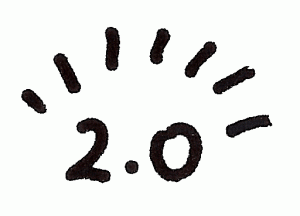Civilization 2.0 – The Facilitation Edition
August 28th, 2013 at 13:03 For five-thousand years human civilization has been about a small privileged elite mostly directing the activity of the rest of us. The bankruptcy of this approach to human society, if not evident previously, became brutally so in the 20th Century when some of the most “advanced” countries on Earth sent millions of their young people to slaughter each other for national pride and systematically exterminated millions of other people simply attempting to live their lives in peace.
For five-thousand years human civilization has been about a small privileged elite mostly directing the activity of the rest of us. The bankruptcy of this approach to human society, if not evident previously, became brutally so in the 20th Century when some of the most “advanced” countries on Earth sent millions of their young people to slaughter each other for national pride and systematically exterminated millions of other people simply attempting to live their lives in peace.Better late than never, there is a more egalitarian approach to human civilization that we have to date only seen small glimpses of. In the vision of great thinkers like Isaiah, Laozi, Gautama Buddha, Jesus of Nazareth, Michael Servetus, Mikhail Bakunin, Maria Montessori, John Dewey, Emma Goldman,Mahatma Gandhi, Martin Luther King Jr., and Aung San Suu Kyi. In the consensus governance practices of the Quakers and the Iroquois. In the egalitarian societies of Scandinavia and the principles embodied in theUniversal Declaration of Human Rights.
Some of the key principles of this revised approach to civilization beyond control and conformity include…
1. Acknowledging Many Paths Rather than One True Way
Acknowledging and accepting the dynamic tension between human beings as a social species and the reality that at the deepest layer of each of us is a truly unique soul. Though we generally are at our best when we collaborate and act collectively, still there is no one true way or universal “best practice”. This includes a more evolved understanding that we can treat each other fairly without trying to enforce sameness, instead encouraging, celebrating and leveraging our differences and the many paths of human development and expression of that development.
In the United States, as we embrace this evolutionary change, this will manifest as a much more dynamic and diversified society, including…
* Public schools that are not all essentially the same, allowing for holistic
